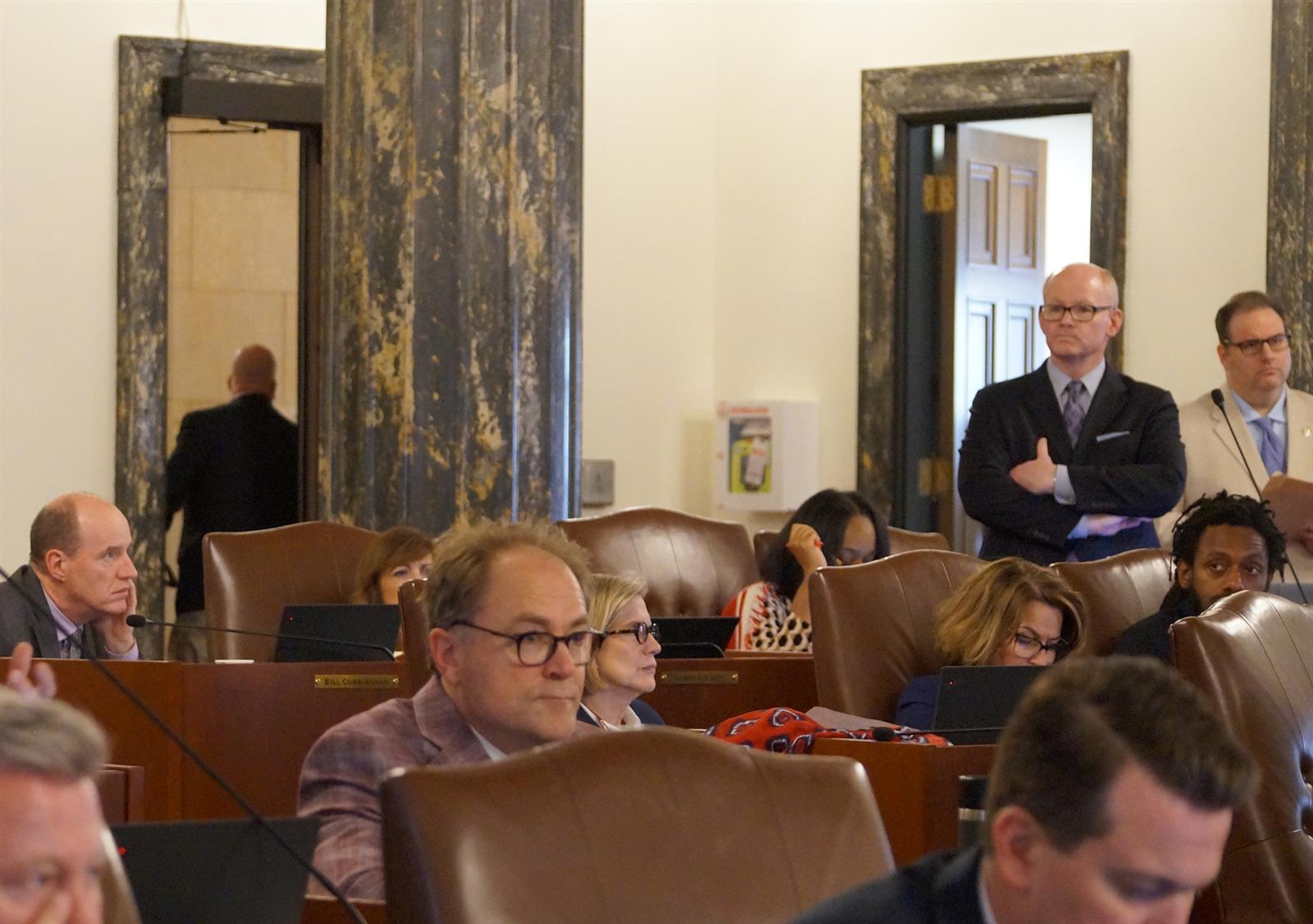Illinois ends post-primary candidate slating

SPRINGFIELD — Governor JB Pritzker has signed a measure that will put three nonbinding referendum questions to voters on the November ballot, along with blocking established parties from putting candidates on the ballot if they did not go through the primary process.
Supermajority Democrats in the House quickly pushed Senate Bill 2412 through their own chamber the on Wednesday. Republicans in both chambers voted “present” on the bill in protest, while a handful of Democrats voted against it or skipped voting altogether.
Republicans criticized the bill as a targeted attempt to block a mid-cycle GOP opponent for Democratic Rep. Katie Stuart of Edwardsville, whose 112th House district in the Metro East did not see a Republican run in the March primary. Both parties have used the slating process to strategically place a candidate on the ballot if they perceive the winner of the other party’s primary as beatable.
The House Republicans’ political arm last month announced Jay Keeven, the former Edwardsville chief of police, would challenge Stuart in the November Election. On Thursday, the party apparatus panned the measure as the “Katie Stuart Protection Act” in a statement announcing Keeven had collected hundreds of signatures in order to file his nominating petitions with the State Board of Elections “within just 24 hours” of the bill’s passage in the House.
Senate President Don Harmon, D-Oak Park, said Republicans’ concerns about the measure’s quick introduction and passage in the middle of a campaign cycle were misplaced. He said the bill would “end a corrosive practice,” alluding to the use of slating by the former powerful Democratic House Speaker Michael Madigan, who’s awaiting trial on federal corruption charges unrelated to elections.
“I want to emphasize we’re not taking this away from Republicans; we’re taking this away from everybody,” Harmon said. “We Democrats won’t be able to slate candidates for the Senate in any districts where your members are running unopposed. It’s a problem with the practice.”
One of the three nonbinding advisory questions that would be put to voters in November under the bill would ask whether they’d favor civil penalties for any candidate who “interferes or attempts to interfere with an election worker’s official duties,” providing kindling for Republican State Sen. Steve McClure, R-Springfield.
“It’s very ironic that a motion that contains a referendum on election interference actually interferes with a pending election,” he said. “That’s what this bill does.”
Gov. JB Pritzker characterized the measure as “actually an ethics bill.”
“It really does make sure that we don’t have backroom deals to put people on the ballot and run as a result of, you know, some small group of people in a smoke-filled room making the choice,” he said. “To me, more transparency is better.”
In addition to the question about civil penalties for candidates who break election laws, voters would also be asked whether health insurance plans that cover pregnancy benefits should be required to cover in vitro fertilization and whether the state should adopt an additional 3 percent tax on income over $1 million “for the purpose of…property tax relief.”
Miss Clipping Out Stories to Save for Later?
Click the Purchase Story button below to order a print of this story. We will print it for you on matte photo paper to keep forever.

